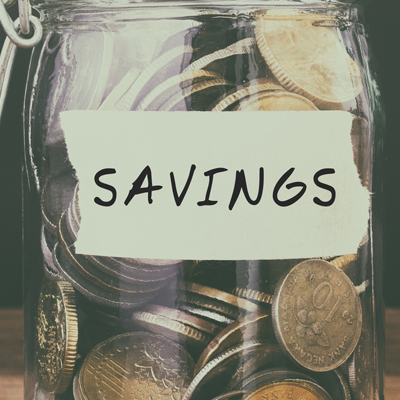Fake travel websites are responsible for many of the most-costly scams. Travellers worldwide have fallen victim to sites selling fake airline tickets, accommodation that doesn’t exist, bogus holiday packages and fake car rentals.
Online fraudsters are becoming increasingly sophisticated, using pop-ups and online advertisements to entice you to visit fake websites that look as good as legitimate ones.
One travel survey¹ found that nearly a quarter of all Singaporean holidaymakers had never checked the authenticity of a website before making a booking. A third¹ of travellers said it had never crossed their mind to check if the site was genuine. Always proceed with caution when booking online.
How can you check if a website is real? The first thing you should do is check the domain name. Always verify that it is a top-level domain (TLD) name that uses the .com suffix; not .org or .net. A website like Booking.com would never use a dot.net suffix (once only used by internet companies) or a dot.org suffix (mainly used by non-profits like colleges and universities). But scammers may use them to try and trick you. Likewise, a legitimate website like luxury resorts sixsenses.com, would never use a variation of their TLD name like ‘cheapsixsenses.com,’ which is an immediate red flag.
When it comes to online payments, always be doubly vigilant. A secure website uses encryption and authentication to protect your transaction. The URL will begin with “https” and include a padlock icon, also known as an SSL certificate. Today, most web browsers warn you when a website is not secure. But always pay attention.
Paying by credit card can offer greater protection against fraud too. If you pay for an airline ticket or hotel room with your credit card and it turns out to be fake, you may be able to get your money refunded by your bank2. Be careful about paying on a third-party platform. A common scammer tactic is to try and lure you away from a trusted booking platform by offering a better rate.
Singaporeans need a visa to visit countries like Australia, Russia and Canada. Fake electronic visa websites are becoming an increasingly common online travel rip-off. They prey on travellers looking to secure an electronic visa for a country or countries they want to visit. You need to be as vigilant browsing a visa application website as browsing a site advertising airline flights or accommodation.
If you get tricked into revealing your personal details, flight information and passport details, you run a high risk of identity theft. You will also lose any money that you’ve paid for a fake visa. If an e-visa website offers a much cheaper or instant visa then chances are, it could be a scam. Only the government of the country you intend on visiting can issue a visa, so be careful.
Today, more than half of all online booking rip-offs involve air travel. Fake travel deals, fraudulent airline competitions and air ticket scams are all on the rise.
Scammers are taking full advantage of airlines expanding their social media presence by posting false offers across different pages. Some of these social media pages may just be a copy of the actual verified pages. Once you click on a link or download an app to take advantage of the offer, you risk giving your personal information to scammers who may steal your identity.
Another social media scam tricks you into thinking that you’re getting a free air ticket for sharing a post. The fraud is triggered when you see a message or post from the ‘official’ page of an airline or travel provider offering two free tickets if you click a link and forward it on to your friends.
Instead, you’ll be taken to a third-party phishing website that is unaffiliated with the airline. With one click, scammers (for example) can steal your Facebook friends’ list or obtain permission to post spam to your timeline. More elaborate versions of this deception steal your username and password through a fake login page.
Fake airline competition scams are growing too. If you receive a text congratulating you on winning an airline competition, it’s most likely fake. Airlines will typically only send you an SMS about flight information, updates or alerts. Do not be tempted to click on any SMS link that says you’ve won an airline competition.
Fake hotel room rackets are on the rise. If a shady online hotel site tries to hook you up with an incredibly low price or unbelievable deal, it’s an immediate red flag. Browse with caution or close the page and look somewhere else.
If a room deal seems too good to be true, call the hotel’s customer service number directly. After you’ve discussed the room price, ask for recommendations for local restaurants and attractions too. The way the other party on the line handles a longer conversation may help provide hints if you’re speaking to a trained customer service officer or an individual that has no experience dealing with tourist inquiries.
If you do decide to make a booking, then always try to contact the hotel directly or send them an e-mail to confirm that you do in fact have a reservation. The more time you spend checking the hotel’s credentials, the less chance you’ll have of being scammed and potentially losing your money.
It’s not just fake tickets you have to worry about. Another airline travel scam targets your email inbox. Weeks before a trip, you may receive an e-mail that asks you to ‘Confirm Your Flight’. It’s easy to fall for this scam because airlines often do send emails asking if you want to check-in online.
So you need to be doubly vigilant. Don’t click on any links in any ‘Confirm Your Fight’ email. You may be taken to a scam website and asked to confirm your name and itinerary via your frequent flyer account. Scammers may then be able to steal your frequent flyer points or even hijack your ticket.
Imagine flying halfway across the world and arriving at a resort only to discover that you don’t have a room? It happens more often than you think. Millions of travellers have been tricked by fake third-party websites and social media posts into booking hotel rooms that do not exist.
Apart from being charged for a room you never get, your credit card information can be compromised too. You can’t cancel or change your booking and you will not earn hotel rewards points. Your vacation will be costly and potentially ruined.
Legitimate hotel sites may not always charge you in advance. They take your payment information and charge you when you arrive. If the hotel charges a deposit to hold the room or offers a discount for payment in advance, this should all be clearly and transparently communicated when you make the booking. If you can’t see this anywhere – or the website demands full payment – it should raise a red flag.
Explore your dream destination without worries with the Standard Chartered’s Visa Infinite X Credit Card. Choose between air miles, cash rewards or travel credits with the card to eXperience a new level of freedom. Terms & conditions apply.
This article is brought to you by Standard Chartered Bank (Singapore) Limited. All information provided is for informational purposes only.
¹Source: TODAY Online – Travel Survey
²Source: Finder











